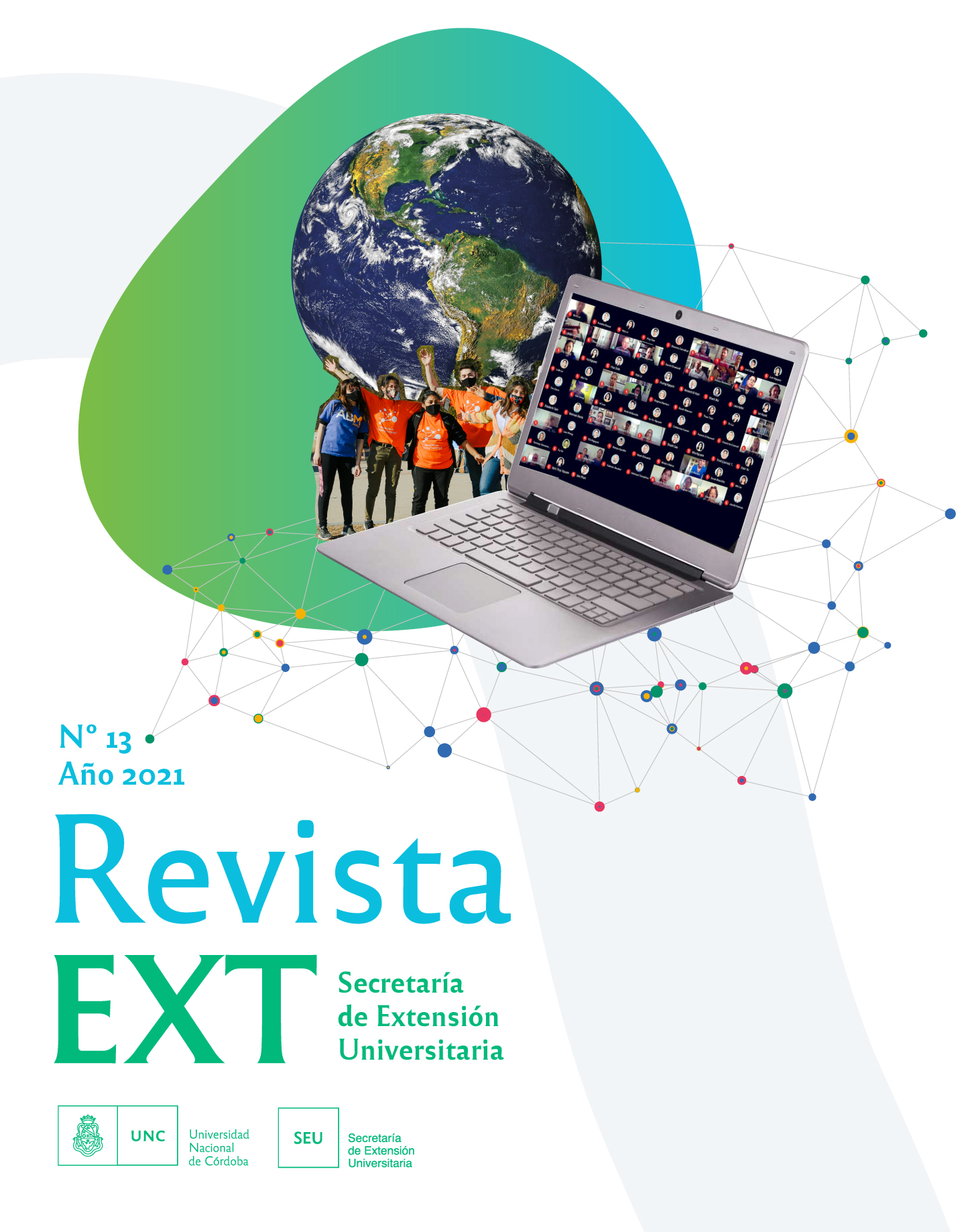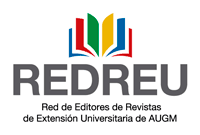Derechos migrantes y educación intercultural: un desafío en plena pandemia
Keywords:
Migrants’ rights; Intercultural Education; Secondary and University LevelAbstract
“The National University of Cordoba (UNC) connects you to the world. Migrant’s rights and Intercultural Education” is a university outreach project that promotes intercultural environments in secondary schools with the aim of recognizing migrants’ rights and fostering values that will allow students to enhance their view of the world. Due to the pandemic, this project had to be adjusted and be carried out remotely. This is why the local team developed its own web page to carry out a series of virtual instances, where migrant volunteers created interactive activities for the secondary students to experience cultural aspects about the different represented countries, to reflect upon the migrants’ rights and to get to know different realities and life stories to provide answers to be transmitted through the project's social networks.
University students from different nationalities, who were either studying at the National University of Cordoba or people who were migrants in our country, were chosen and trained as volunteers to create different materials. The local team supported them and provided them with a content guide, which was the result of group work supported by people from other entities, that is, it was created with an interdisciplinary and collaborative approach in order to share those contents through the web page.
Downloads
References
Consejo Interuniversitario Nacional (2012). Resolución No 692/12, al respecto de la Extensión Universitaria.
De Sousa Santos, B. (2010). Descolonizar el saber, reinventar el poder. Montevideo, Ediciones Trilce y Extensión de la Universidad de la República.
Diez, M. L.; Martínez, M. E.; Thisted, S.; Villa, A. (2009). Interculturalidad-es desde las acciones institucionales: Procesos educativos y escolares en espacios interculturales. En: Revista Decisio. Número 24, CREFAL.
Directrices de la UNESCO sobre la educación intercultural. (2006). Sección de Educación para la Paz y los Derechos Humanos. París, UNESCO.
Garnero, D. (2011). Noveno mojón, Relatos educativos: Interculturalidad. En: Ferrer, Marcela; Zayat, Felipe Antonio. ¡Eureka! Hay aborígenes en Córdoba: practi-pensando la interculturalidad en la ciudad. Córdoba, edición de los autores.
Guerreño López, M. (2016). Derechos humanos y migración internacional en Córdoba. Córdoba, EDUCC.
INADI (2014) Mapa nacional de la discriminación en Córdoba. Buenos Aires, Argentina., Instituto Nacional contra la Discriminación, la Xenofobia y el Racismo INADI.
Informe de Estadística Consolidada de Radicaciones Iniciadas y Resueltas (2018).
Dirección Nacional de Migraciones. Ministerio del Interior de la Nación. Recuperado de: http://www.migraciones.gov.ar/pdf/estadisticas/radicaciones_resueltas_2018.pdf
Ley de Migraciones N° 25.871, Boletín Oficial de la República Argentina, Buenos Aires. 17 de diciembre del 2003. Recuperada de: http://servicios.infoleg.gob.ar/infolegInternet/anexos/90000-94999/92016/texact.htm
Margulis, M. (2009). Sociología de la cultura: conceptos y problemas. Buenos Aires, Editorial Biblos.
Martinelli, S. (coord). (2000). Aprendizaje Intercultural T-Kit. Editorial del Consejo de Europa.
Pérez Morales, J. (2007). Propuesta de intervención psicopedagógica para el aprendizaje del idioma inglés. [Tesis de doctorado, Universitat de Girona] https://www.tdx.cat/bitstream/handle/10803/8004/tjipm.pdf
Walsh, C. (2005). La interculturalidad en la Educación. Perú, Ministerio de Educación y UNICEF.
Downloads
Published
Issue
Section
License

This work is licensed under a Creative Commons Attribution-NonCommercial-ShareAlike 4.0 International License.
Aquellos autores/as que tengan publicaciones con esta revista, aceptan los términos siguientes:
- Los autores/as conservarán sus derechos de autor y garantizarán a la revista el derecho de primera publicación de su obra, el cuál estará simultáneamente sujeto a la Licencia de reconocimiento de Creative Commons que permite a terceros compartir la obra siempre que se indique su autor y su primera publicación esta revista.
- Los autores/as podrán adoptar otros acuerdos de licencia no exclusiva de distribución de la versión de la obra publicada (p. ej.: depositarla en un archivo telemático institucional o publicarla en un volumen monográfico) siempre que se indique la publicación inicial en esta revista.
- Se permite y recomienda a los autores/as difundir su obra a través de Internet (p. ej.: en archivos telemáticos institucionales o en su página web) después del proceso de publicación, lo cual puede producir intercambios interesantes y aumentar las citas de la obra publicada. (Véase El efecto del acceso abierto).





